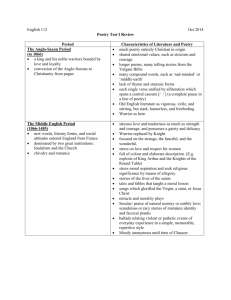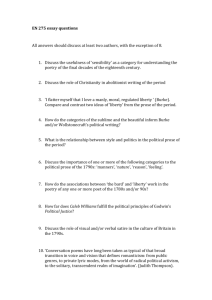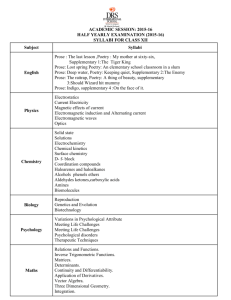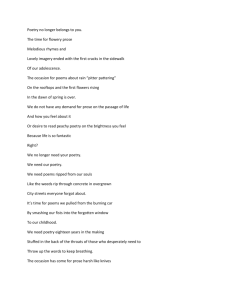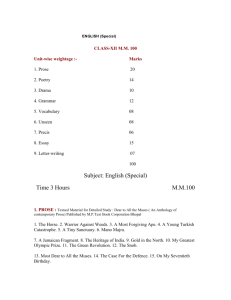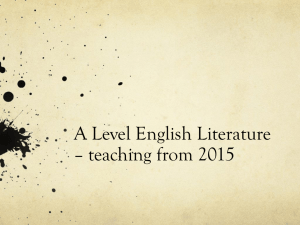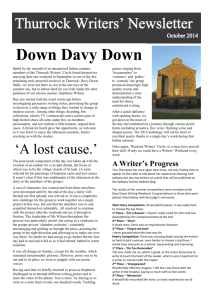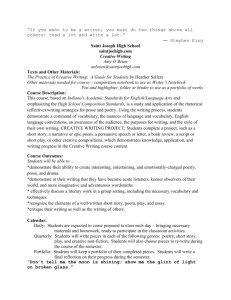Prose vs. Poetry Definition
advertisement
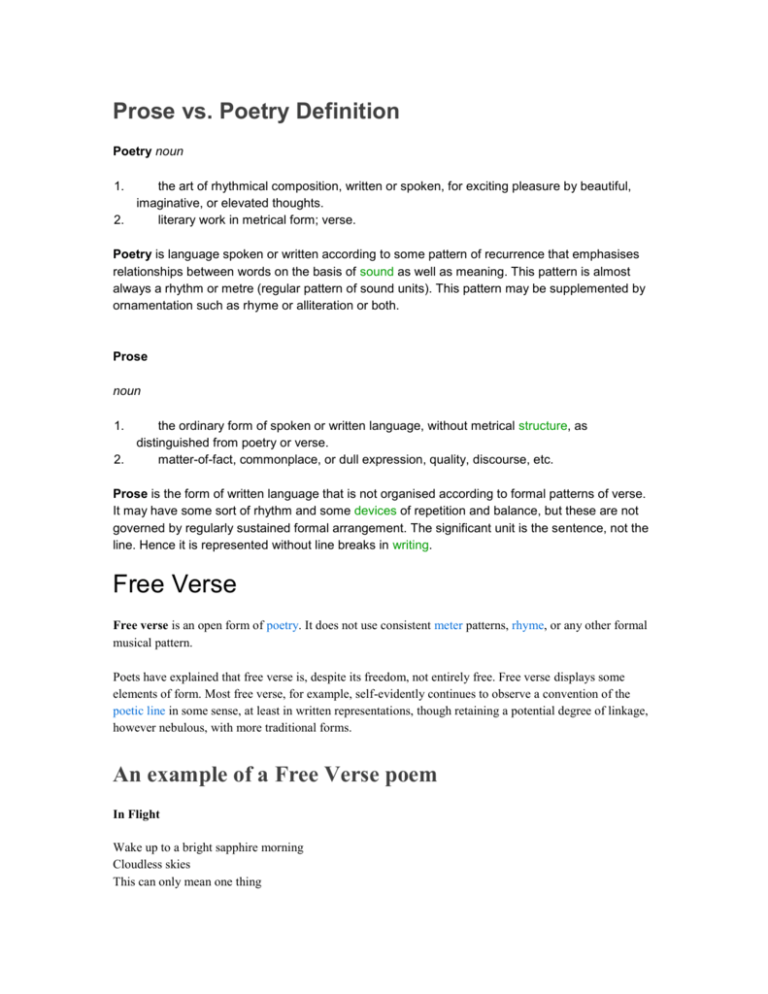
Prose vs. Poetry Definition Poetry noun 1. the art of rhythmical composition, written or spoken, for exciting pleasure by beautiful, imaginative, or elevated thoughts. 2. literary work in metrical form; verse. Poetry is language spoken or written according to some pattern of recurrence that emphasises relationships between words on the basis of sound as well as meaning. This pattern is almost always a rhythm or metre (regular pattern of sound units). This pattern may be supplemented by ornamentation such as rhyme or alliteration or both. Prose noun 1. the ordinary form of spoken or written language, without metrical structure, as distinguished from poetry or verse. 2. matter-of-fact, commonplace, or dull expression, quality, discourse, etc. Prose is the form of written language that is not organised according to formal patterns of verse. It may have some sort of rhythm and some devices of repetition and balance, but these are not governed by regularly sustained formal arrangement. The significant unit is the sentence, not the line. Hence it is represented without line breaks in writing. Free Verse Free verse is an open form of poetry. It does not use consistent meter patterns, rhyme, or any other formal musical pattern. Poets have explained that free verse is, despite its freedom, not entirely free. Free verse displays some elements of form. Most free verse, for example, self-evidently continues to observe a convention of the poetic line in some sense, at least in written representations, though retaining a potential degree of linkage, however nebulous, with more traditional forms. An example of a Free Verse poem In Flight Wake up to a bright sapphire morning Cloudless skies This can only mean one thing It’s a go! At the launch site Teeth chit-chattering And not just from the c-cold What if a bird confuses my head for a perch? Will my glasses be fogged up by the clouds? If I fall out of the basket And land in a field of cows I’m never forgiving my mum Up we go! Far below Idyllic fields of patchwork green Glittering lakes - a treasure trove beneath the surface Click! I can’t believe I’m so high Feeling like a queen I stretch my arms out to the sides Now I’m a bird So high I close my eyes and take flight I feel the wind in my wings Up with the clouds My hair, now feathers, sweeps behind me I am as elegant as a swan Soaring higher than the Earth Crash! Oh I’m not a bird I’m not as elegant as a swan I’m about as elegant as a rhino on roller skates I’m just a schoolgirl On a balloon flight And we just crash-landed In a field With cows. Prose Poetry Prose poetry is poetry written in prose instead of using verse but preserving poetic qualities such as heightened imagery and emotional effects. It can be considered primarily poetry or prose, or a separate genre altogether. While prose poetry in the West originated in the 19th century, it has gain more popularity since the 1980s. Quoting Poetry vs Quoting Prose It is normal to quote prose texts by indenting the quotation if it will run more than four lines on the page (this refers to from the left to the right margin, not to poetic lines). If the quotation is shorter, it may be integrated into the main text. In writing about poetry, it is essential to indicate these line breaks when quoting a poem. The standard way is to indent the text. However, for short quotes under five lines it is conventional to integrate the quote into your writing and indicate the line breaks with a slash. For example, in the above limerick “an epicure dining at Crewe / Found a very large bug in his stew.” It is absolutely essential to indicate the line breaks in the correct format for the length of the quotation.
